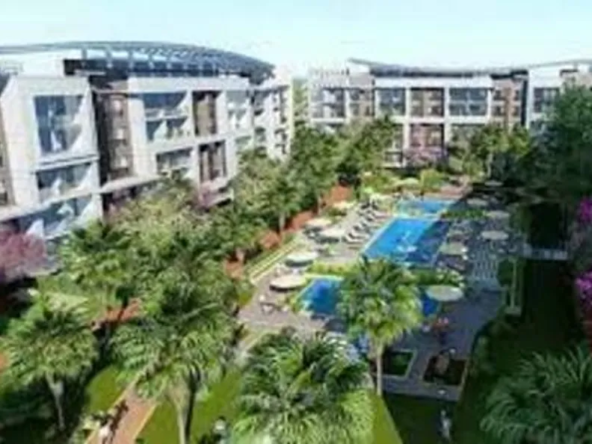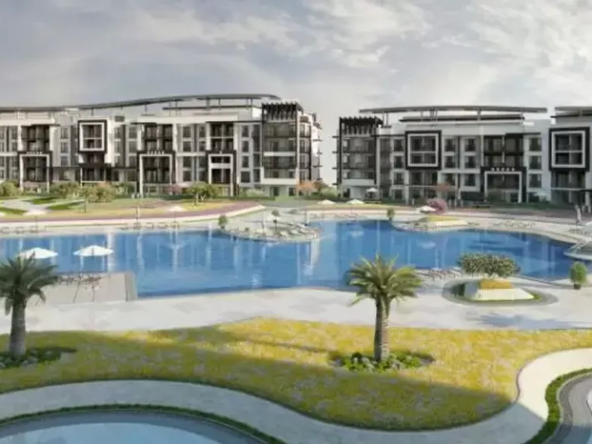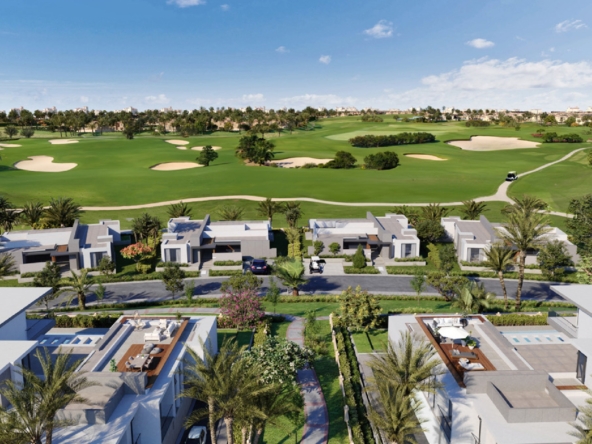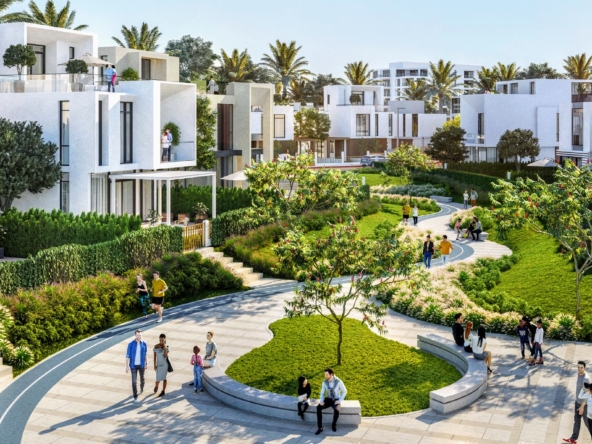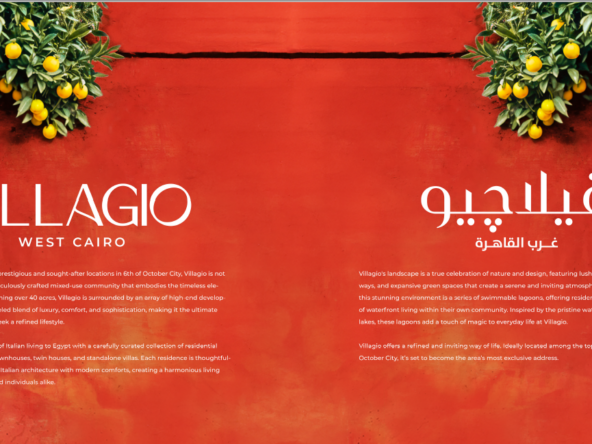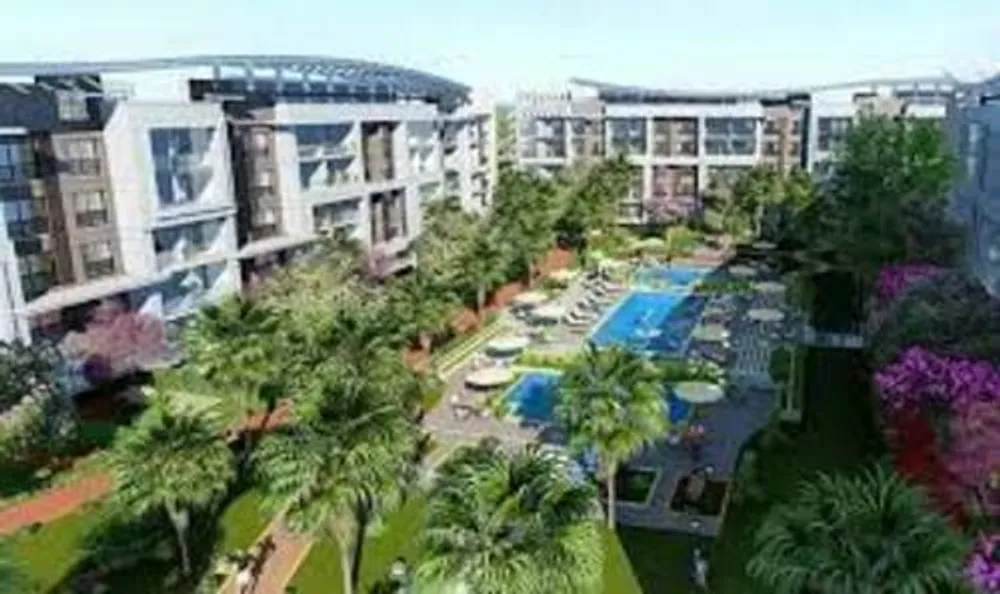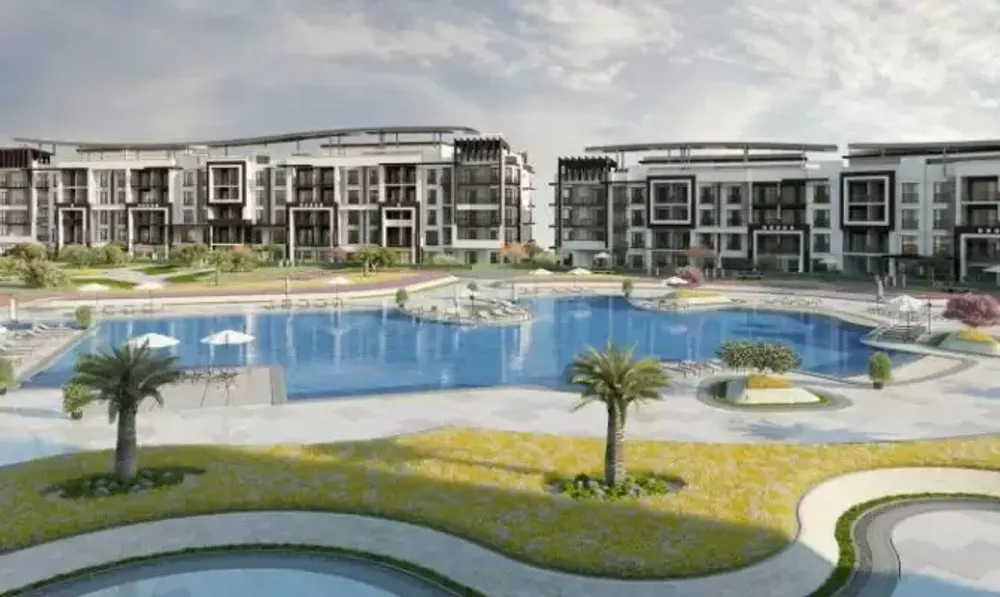Overview
- Residential
- Property Type
Description
Porto Pyramids Compound offers a unique living experience in 6th of October City, Egypt. Located along the Cairo-Alexandria Desert Road, this residential development features various housing choices including apartments and duplexes. The compound provides residents with modern amenities and a prime location outside Cairo.
The project, developed by Porto Group, spans an impressive area and offers units ranging from 148 to 237 square meters. Porto Pyramids combines contemporary design with convenient access to the bustling metropolis of Cairo, making it an excellent choice for those seeking a balanced lifestyle.
Overview of Porto Pyramids Compound
Porto Pyramids Compound is a prestigious residential development in the 6th of October City, Egypt. It offers several modern housing options and amenities designed to provide residents with a luxurious living experience.
Location and Accessibility
Porto Pyramids Compound is situated along the Cairo-Alexandria Desert Road in the 6th of October City. This strategic location gives easy access to major areas of Greater Cairo. The compound is approximately 30 minutes from downtown Cairo and 20 minutes from the Pyramids of Giza.
Residents benefit from the proximity to Juhayna Square, a central commercial hub in the area. The compound’s position also allows for convenient travel to New Cairo and other surrounding districts.
Porto Pyramids enjoys excellent connectivity through major highways, making commuting to work, schools, and leisure destinations straightforward for residents.
Developer Background
Porto Pyramids Compound is developed by Amer Group, a prominent real estate company in Egypt with a strong track record of creating high-quality residential and commercial projects across the country.
The developer is known for its Porto brand of properties, which includes developments in various locations such as Ain Sokhna and New Cairo. Amer Group’s experience in the real estate sector spans several decades.
Their projects typically feature modern designs, comprehensive amenities, and a focus on creating integrated communities. This approach is evident in the planning and execution of Porto Pyramids Compound.
Residential and Commercial Properties
Porto Pyramids Compound offers diverse residential options and commercial spaces to cater to different lifestyle needs. The development features several housing types, essential amenities, and retail outlets.
Types of Residential Units
Porto Pyramids provides various residential unit types for different preferences and family sizes. Apartments are available in different layouts and sizes, from compact studios to spacious 3-bedroom units. Villas offer more privacy and space for larger families.
Duplexes and penthouses provide luxury options with multiple floors and exclusive features. Townhouses and twin houses blend the benefits of apartments and villas, offering more space and privacy than apartments while being more affordable than standalone villas.
Amenities and Services at Porto Pyramids Compound october
The compound boasts comprehensive amenities for residents’ comfort and convenience. A social club serves as a central hub for community activities and leisure.
Sports facilities include swimming pools, tennis courts, and fitness centers. In addition, green spaces and parks offer areas for relaxation and outdoor activities. Moreover, these areas contribute to a balanced and healthy lifestyle for residents.
Security services ensure a safe living environment with 24/7 surveillance and controlled access points. The development also provides maintenance services to keep the community in top condition.
Retail and Dining
Porto Pyramids incorporates commercial spaces to meet residents’ daily needs and provide entertainment options. Small shops and convenience stores offer everyday essentials within the compound.
Restaurants and cafes meet various tastes, from quick bites to fine dining experiences. These establishments serve as social gathering spots for residents and visitors alike.
Nearby malls complement the compound’s retail offerings, providing access to multiple shopping options, entertainment venues, and additional dining choices.
Pricing and Investment Opportunities
Porto Pyramids Compound offers diverse property options at competitive prices. Buyers can use flexible payment plans to secure their dream homes in this exclusive development.
Property Prices at Porto Pyramids Compound october
Apartments in Porto Pyramids start from 1.5 million EGP for a 112 square meter unit. Meanwhile, larger units and duplexes command higher prices, with some reaching up to 3 million EGP. Furthermore, villas and townhouses are available for those seeking more spacious accommodations, with prices varying based on size and location within the compound.
Prime units with pyramid views fetch premium rates. The compound’s strategic location on the 6th of October City contributes to its appeal as an investment opportunity. Property values in the area have shown steady appreciation over recent years.
Payment and Installment Plans
Porto Pyramids offers flexible payment options to suit various budgets. Typical down payments vary from 10% to 20% of the total property value. Buyers can choose installment plans spanning 5 to 8 years.
Some units come with attractive 0% interest plans for the first year. Select properties may offer extended payment periods of up to 10 years. The developer occasionally runs promotions with reduced down payments or extended installment periods.
Investors can benefit from rental income potential, as the compound is popular among long-term residents and short-term visitors. The project’s amenities and location make it attractive for those seeking to generate returns through property rentals.
Porto Pyramids Compound Experience and Lifestyle
Porto Pyramids Compound offers diverse amenities and services to enhance residents’ quality of life. To illustrate, the development prioritizes comfort, convenience, and community engagement through its carefully planned facilities and programs. Ultimately, this creates a well-rounded and satisfying living experience.
Recreational and Wellness Facilities
The compound features a state-of-the-art gym with modern exercise machines and free weights. Fitness enthusiasts can easily maintain their routines or start new ones.
A large swimming pool gives a refreshing escape from the Egyptian heat. In addition, residents can relax by the poolside or swim laps for exercise. Furthermore, the pool offers a perfect spot for socializing and unwinding.
The on-site spa offers various treatments, including massages and facials, allowing residents to unwind and rejuvenate without leaving the compound.
Sports clubs within Porto Pyramids cater to various interests. Tennis courts, basketball courts, and football fields are available for active residents.
Educational and Health Services
Porto Pyramids is situated near reputable schools and universities, ensuring quality education options for families with children of all ages.
A well-equipped medical clinic within the compound provides basic healthcare services. Moreover, a modern hospital is located nearby for more specialized care. In addition, this ensures residents have access to comprehensive healthcare options.
The compound also houses a library and learning center, fostering a culture of continuous education and personal development among residents.
Community and Security
Green spaces and landscaped gardens throughout Porto Pyramids create a peaceful environment for residents to enjoy nature and socialize with neighbors. As a result, these areas promote relaxation and a sense of community. Additionally, they enhance the overall aesthetic of the compound.
Family-friendly areas include playgrounds and picnic spots, encouraging community interaction and outdoor activities.
The compound employs a 24/7 security team and utilizes advanced surveillance systems to ensure residents’ safety and peace of mind.
Gated entrances and controlled access points further enhance security, creating a protected living environment.
Regular community events and activities organized by the management help foster a sense of belonging and strengthen social bonds among residents. In turn, these events create a more connected and supportive community. Furthermore, they encourage active participation and engagement among residents.
Design and Architecture
Porto Pyramids Compound features a thoughtful master plan and striking aesthetic elements. In fact, the development’s design harmonizes modern architecture with panoramic views of the surrounding landscape. Overall, it creates a visually appealing and functional living environment.
Master Plan and Layout
Porto Pyramids span a vast area and are carefully planned to maximize space and functionality. The compound incorporates a mix of residential projects, including apartments and villas. Green areas are strategically placed throughout, creating pockets of nature amidst the built environment.
The layout prioritizes privacy and comfort for residents. Additionally, building heights vary to create visual interest and optimize views. Moreover, wide streets and pedestrian pathways connect compound sections, promoting walkability and community interaction.
Aesthetic Elements and Views
Architectural designs in Porto Pyramids blend contemporary styles with subtle nods to Egyptian heritage. Moreover, clean lines and geometric shapes define the buildings’ exteriors. In addition, large windows and balconies are standard features, allowing natural light to flood interiors.
Many units offer panoramic views of the surrounding landscape, including glimpses of the iconic Pyramids of Giza in the distance. The compound’s elevated position enhances these vistas.
Landscaping plays a vital role in the overall aesthetic. For instance, manicured gardens, water features, and native plants create a lush environment. As a result, these green spaces beautify the compound and provide areas for relaxation and recreation.
Frequently Asked Questions
Porto Pyramids Compound offers a range of residential options and amenities in 6th of October City. Consequently, potential buyers and residents often have questions regarding pricing, layout, facilities, location, and security. In particular, these aspects are key factors when considering a new home.
What are the current prices for residential units in Porto Pyramids Compound?
Prices for residential units in Porto Pyramids Compound vary based on size, type, and location within the development. Apartments typically start from around EGP 1.5 million, while villas and townhouses can range from EGP 4 million to EGP 10 million or more.
Pricing is subject to change and may be affected by market conditions and availability.
Where can I find a map of the Porto Pyramids Compound?
Maps of Porto Pyramids Compound are available through the developer’s official website, Amer Group. Prospective buyers can also request detailed layout plans from sales representatives or visit the on-site sales office for a physical compound map.
These maps typically show the locations of residential units, amenities, and common areas within the compound.
What types of amenities are available at Porto Pyramids Compound?
Porto Pyramids Compound offers a wide range of amenities for residents. For example, these include swimming pools, fitness centers, and sports facilities such as tennis courts and jogging tracks.
The compound also features landscaped gardens, children’s play areas, and community spaces for social gatherings. Retail outlets and dining options are available within the compound for convenience.
In Conclusion
If you are interested in learning more about real estate projects, be sure to visit https://merakeg.com for more detailed information and updates.
Address
- Address
- Zip/Postal Code
- Country
- State
- City 6th Of October
- Area
Details
- Price EGP3,500,000
- Property Status Developer Sale
- Property Type Residential
Mortgage Calculator
- Down Payment
- Loan Amount
- Monthly Mortgage Payment
- Property Tax
- Home Insurance
- PMI
- Monthly HOA Fees
What's Nearby?
Contact Information
View ListingsSimilar Listings
City Gate in New Cairo by Qatari Diar
- EGP6,028,000
- Residential
Cairo Gate in El Sheikh Zayed by Emaar Misr
- EGP48,158,376
- Residential
Villagio 6th of October Compound
- EGP5,832,000
- Residential

